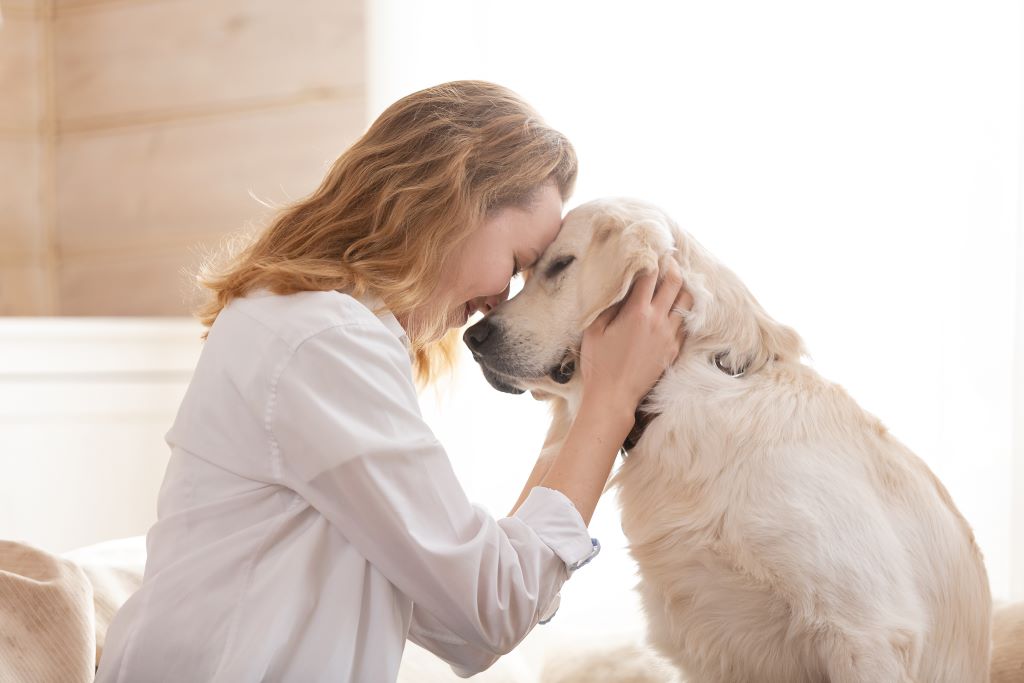What To Expect As My Dog Becomes Older
Dogs mature much quicker than humans do, and the size of the adult dog also has a role to play.

One of the best aspects of owning a dog is being able to be part of your dog's life, through all phases and ages. Watching your dog grow and learn from puppy hood to adulthood is not only rewarding, but a bonding experience shared between dog and owner. Unfortunately, pets in general age faster than humans, and dogs are no exception. As your pet becomes older there are several stages and key indicators throughout life to watch for. Below, let's take a look at what to expect as your dog becomes older.
So How Old Is My Dog, Really?
Many people want to know how old their dog is in human years. You've probably heard at one point or another that a dog ages about seven human years for every one year of his or her dog life.
Unfortunately, that approximation is not the most accurate. Dogs mature much quicker than humans do, and the size of the adult dog also has a role to play in age approximation. In the first year of life a dog, regardless of size, will age about 15 human years. Over the course of the next year, a dog's approximate age will slow down, reaching about 24 human years by the time your dog turns two.
At this point, small dogs that are around 20 pounds or less will age more slowly, reaching about 56 human years by the time 10 years have passed. Compare this to a large breed dog, over 50 pounds, that is about the equivalent of 66 human years at age 10. To calculate how old your dog is in human years, this convenient age chart can give you a good approximation.
Reduced Activity
Although there are plenty of stories of dogs over 10 years of age that still have the energy of a young puppy, the truth is that as dogs become older they tend to slow down.You may notice that your pet is not as eager to run around and play, or may choose not to jump up onto his favorite chair to sit next to you.
While reduced activity levels are certainly a culprit of old age, the underlying root cause for decreased activity could be arthritis. As dogs become older they are prone to developing the inflammatory joint disease, just like humans. Inflamed joints can make jumping and running painful for your pet.
Luckily, arthritis in dogs can be fairly easily treated with the help of a veterinarian. If you suspect that your dog may be suffering from arthritis, a trip to the veterinary office can help tremendously. A vet will be able to determine if your pet does indeed have the disease, and can help prescribe vitamins, medication, or even physical therapy that can help reduce the pain and swelling within the joints.
Increased Weight
Your pet's reduced activity level impacts how many calories he or she will burn throughout the day, and you may notice that your pet's weight is increasing.
Unfortunately, not only is having an overweight pet unhealthy, but obesity can complicate other medical conditions that come with old age. Additional weight on your pet can worsen arthritis and increase your dog’s risk for diabetes, heart disease and high blood pressure.
In order to help control and manage your pet's weight, be sure to find a healthy dog food that works for older dogs. Typically, you'll want to find a high quality dog food for seniors that is not packed full of fillers. The dog food should have minimal calories. Just enough to give your dog the fuel and energy he needs to make it through the day, without giving him extra calories that will pack on the pounds. If you notice that your dog is becoming a bit overweight, a helpful trick is to mix some cut vegetables, like green beans, in with your dog's low calorie dog food. Always check with your veterinarian before making changes to your dog’s diet.
Behavior Changes
Just like people, as dogs age their behavior often changes too. The actions and movements of a puppy are much different when compared to the behaviors of a senior dog. Once your dog starts to approach "old age" you may notice day to day behavioral changes. While these changes are completely normal, it is important to note any sudden changes, as these could be a sign of a more dangerous, underlying condition.
As dogs age they may not hear and see as well as they once did. You may notice your pet missing certain cues while watching the yard, or perhaps even ignoring motion all together. Your dog may not hear your commands as well, resulting in them ignoring your calls completely. While some dogs cope well with hearing and vision degradation, other dogs become alarmed and frightened by these changes. This can result in a pet reacting more irritably to situations, growling or snapping at sudden noises and motion.
Further, you may notice that your dog starts to have more "accidents" in the home as he becomes unable to hold his bladder until it is time to go outside. Your dog may also show less interest in playing or running, which could be a sign of arthritis. When these behavioral changes start to become a trend, and less of a "one off" occurrence, it is a good idea to take your dog to the vet. While these behaviors may just be a sign of an aging pet, they can also be symptoms of a larger systemic disease.
Whether you adopted your dog as a puppy, or have only recently been together through your pet's golden years, being able to live alongside your dog is a wonderful bonding experience. Just like people, dogs progress through all stages of life, albeit a bit more quickly compared to humans. Understanding and knowing what to expect at each phase in life can not only help you better understand the changes occurring, but will help you be more prepared to better care for your pet.
Ready to start saving money on pet wellness care?
Then take a look at Mint Wellness, the pet wellness plan that provides fast reimbursement on routine pet care. Save on vaccinations, wellness exams, preventatives, dental, and more!
Learn More
.jpg)

